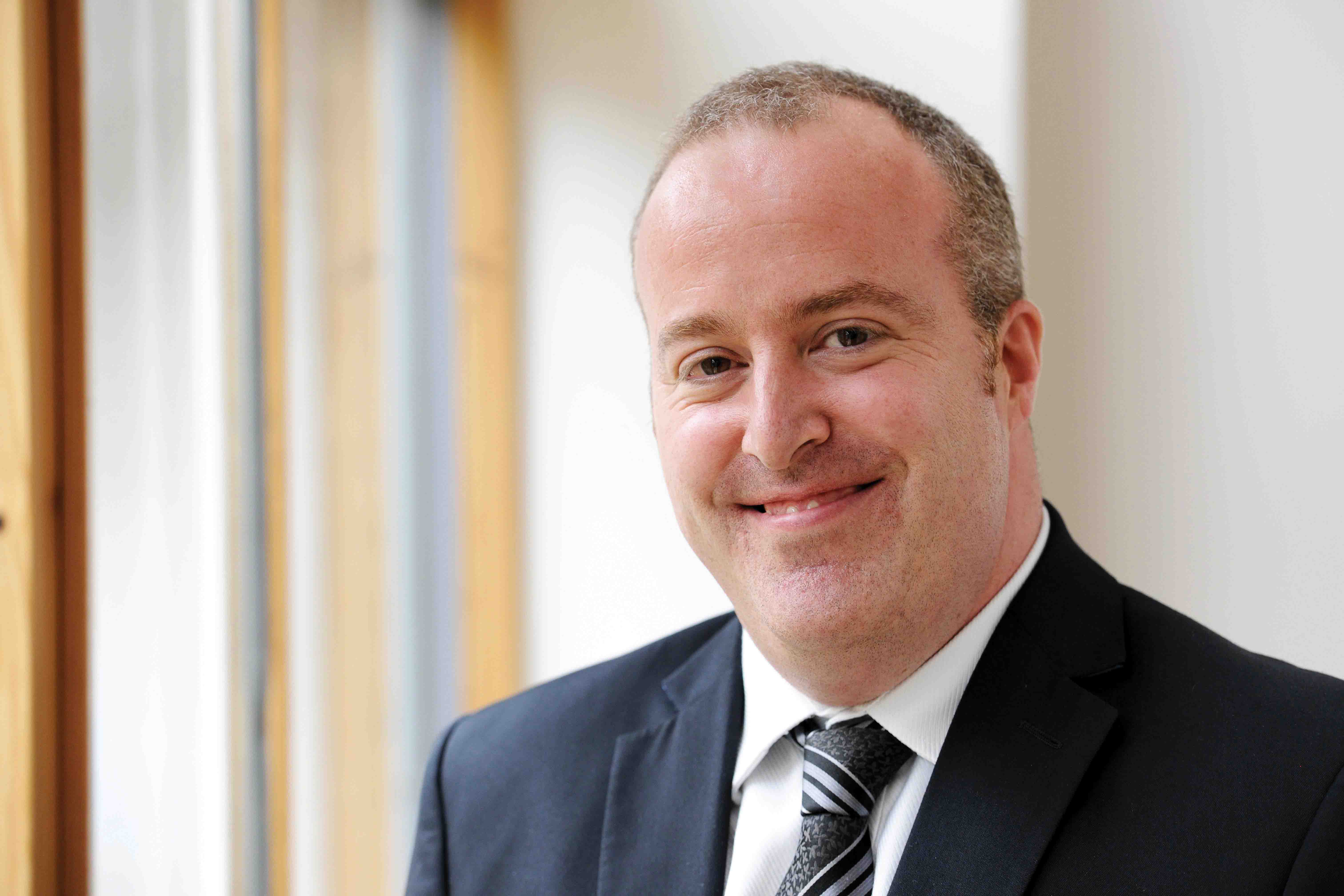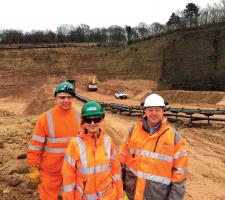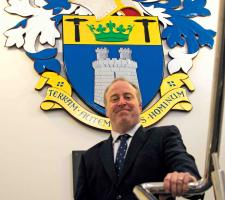
James Thorne is the new chief executive officer of the
James Thorne says his immediate priority in his new role is to listen – to the needs of IQ member quarry operators and their staff working at quarry faces up and down the UK, to the needs of large- and small- and medium-sized minerals extraction firms, and to other industry stakeholders, in an increasingly competitive and regulated British marketplace. He also wants to be receptive to ideas on how IQ can extend its support in educating the quarry workers of tomorrow, through its own IQ Academy courses and in its support of the Foundation Degrees, Honours Degrees and Higher Apprenticeships offered by The
The day before this interview is a prime example of Thorne’s approach to his new role, as he tells me how much he enjoyed time spent hearing the views of staff at
“We need to be talking up the quarrying sector. Its products build our roads, schools, homes and hospitals. These things touch on everybody’s lives,” says Thorne, who replaces Phil James, who left IQ last autumn to become CEO at the Institute of Leadership and Management.
In his last role before becoming IQ CEO, Thorne was the executive director of membership with IOSH (Institution of Occupational Safety & Health). During his time with the organisation, he worked closely with members, developing research to understand the needs of the organisation’s 46,000-plus members around the world. He then led on enhancements to the support and services available to its membership, helping safety and health professionals to network, share knowledge and to develop their careers. Most recently, Thorne was involved in supporting the development of IOSH’s new five-year strategy. He aims to bring IOSH’s best practice on health and safety and sustainability, both key aspects of the modern quarrying industry, to his new role.
“I really enjoy working in membership body organisations. They are very interesting places to work, with a lot of interaction.
“I think for me, coming to IQ was a case of the right organisation at the right time. When you look at the work they are doing around the Skills Wheel and CPD, and the challenges the industry itself is talking about, IQ is a really pro-active membership body that’s putting in solutions to help support members resolve issues and add value to their organisations.”
Thorne stresses how he has a great team of people alongside him at the Institute. “It’s not a case of what we haven’t done, but building on what we give to our members already,” he notes. “The world of work has changed and we need to continue to give members the information they need in the best format. I was previously at IEMA (The Institute of Environmental Management and Assessment) and we used technology to host webinars.”
Although without a background in quarrying, Thorne, who has an environmental science degree, used to work in the timber trade for a long-standing family business in Dorset. He sees much correlation between the two sectors.
“There are a lot of parallels in terms of them both being heavy extractive industries. Industries where you’re dealing with issues around sustainability and health and safety. That was a real attraction to this job.
“With my environmental science degree background, I was cast back 25 years yesterday (visit to Tarmac’s Bestwood Quarry) when I was talking to quarry workers about hydrology and geology, and looking at the sandstone formation of the quarry’s cliffs. It made me think that, in a way, this job almost feels like a kind of coming home.”
The Institute of Quarrying is, this year, celebrating its 100th anniversary with a series of high-profile events during 2017 – including the creation of a spectacular ‘Quarry Garden’ at the first ever RHS Chatsworth Flower Show this summer. Such events are designed to share the essential role the sector plays in our everyday lives.
It was during World War I that four quarry workers in Wales laid the foundations for a professional body to represent and support individuals working in the mineral extractives sector. A hundred years on, IQ is a global network with over 5,000 members, including 13 UK branches and international offices in Australia, Malaysia, New Zealand, Hong Kong and South Africa.
“It’s a great time to be at IQ. There’s lots to talk about and to celebrate. But, crucially, there’s also lots to be done on how best to help members going forward.
“The UK is leading the way on many issues around quarrying, such as health and safety, sustainability, climate change and resource security. As such, we have a duty as a professional membership body to help develop this best practice globally. Indeed, some of our members, such as
Thorne emphasises that the strength of any organisation is its members’ knowledge and experience. “We want them to help us support new people coming into this profession. This gives you the mandate to develop qualifications and training to make them the best they can be.
“Eight people in a room in Nottingham don’t know all the answers for the industry. When you’ve got 5,000-plus members across the globe operating in the industry day-to-day, they know what the issues and challenges are. We’ve got senior people in very large and small operations whose great range of knowledge we can tap into.”
IQ recently added to its growing portfolio within sector-specific professional development by introducing a new health, safety and environmental qualification.
The Level 3 Certificate in Safety, Health and Environmental Awareness for the Extractives and Mineral Processing Industries is targeted at upcoming managers and supervisors looking to develop their knowledge before progressing to a leadership role.
“My ambition is that you can always do more, and a big part of that is understanding the needs and best way of developing these qualifications,” says Thorne, who describes his management style as “open, honest and collaborative”. “You need education and competence throughout an organisation. It doesn’t just sit with the leaders. It’s important for everyone, whatever their role.”
Thorne believes that given its already admirable record of tackling issues around health and safety, sustainability and resource security, and despite widespread concerns over the Aggregates Levy and the UK’s vote to leave the European Union, the UK quarrying sector has an extremely bright future.
Judging by his early days as IQ CEO, it’s a future Thorne will help shape with much commitment and enthusiasm.











